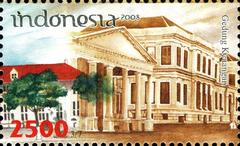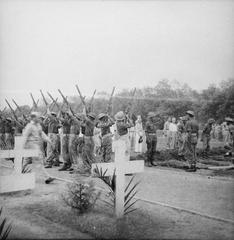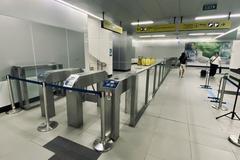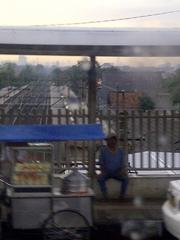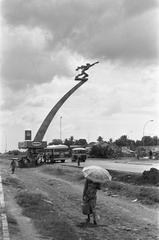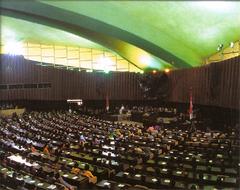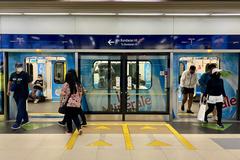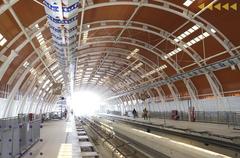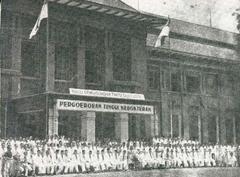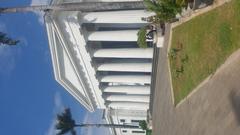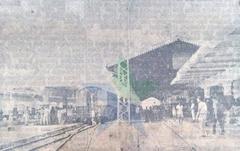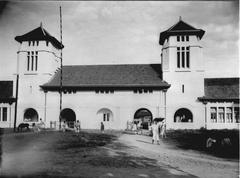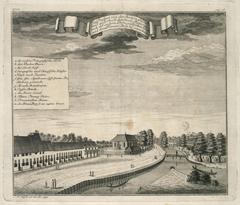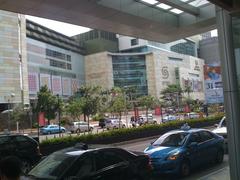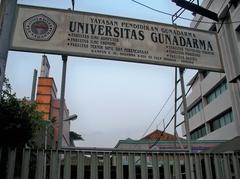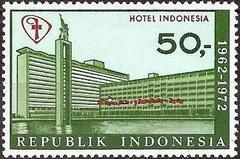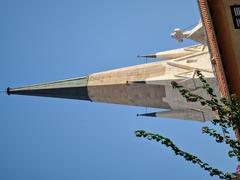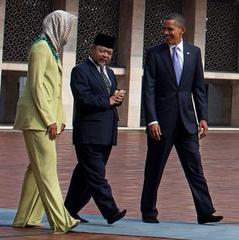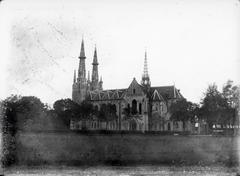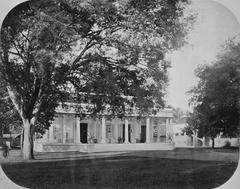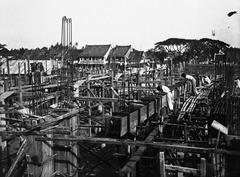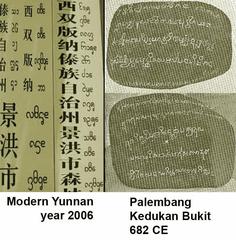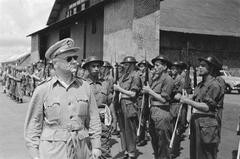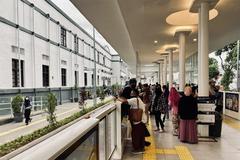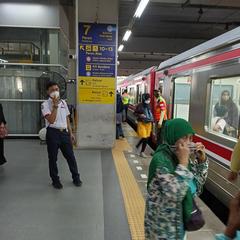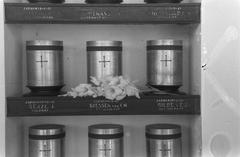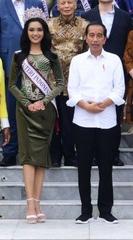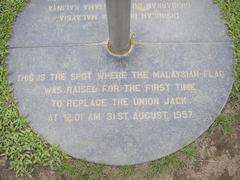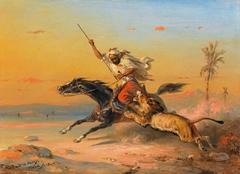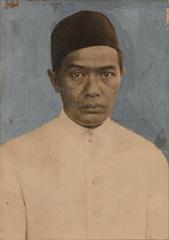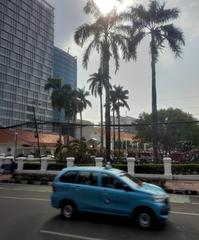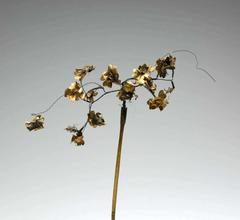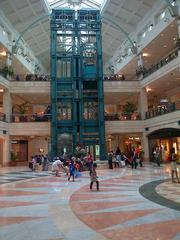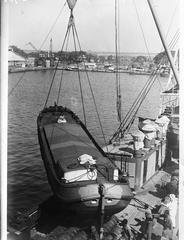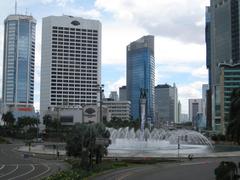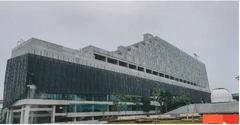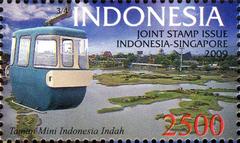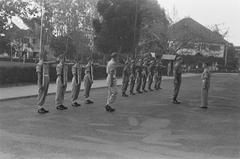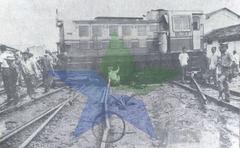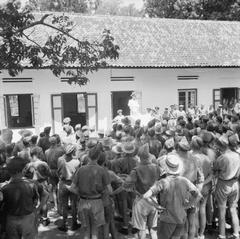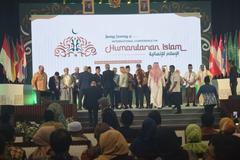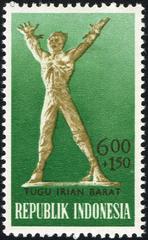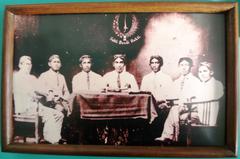Al-Mansur Mosque Visiting Hours, Tickets, and Jakarta Historical Sites Guide
Date: 04/07/2025
Introduction to Al-Mansur Mosque in Jakarta
Nestled in the historic Tambora district of West Jakarta, Al-Mansur Mosque stands as one of the city’s oldest and most culturally significant Islamic landmarks. Established in 1717 by Abdul Mihit, a descendant of the Mataram Sultanate, the mosque—originally called Masjid Jami Kampung Sawah—bears witness to over three centuries of religious devotion, architectural evolution, and pivotal moments in Indonesia’s national story. Today, Al-Mansur Mosque remains a vibrant center of worship, education, and cultural preservation, welcoming both local worshippers and international visitors.
This comprehensive guide provides practical details on visiting hours, ticketing, visitor etiquette, accessibility, transportation, and nearby attractions. For deeper exploration, consult resources such as Mosqpedia, Wikipedia, and The Jakarta Post.
Table of Contents
- Introduction
- Founding and Early History
- Architectural Heritage and Influences
- Role in the Struggle for Independence
- Religious and Cultural Significance
- Visiting Information
- Preservation and Heritage Status
- Legacy of Guru Mansur
- Architectural Features
- Museum Gallery
- Practical Visitor Guide
- FAQ
- Conclusion
- References
Founding and Early History
Al-Mansur Mosque, originally Masjid Jami Kampung Sawah, was founded in 1717 CE (1130 H) by Abdul Mihit (also known as Abdul Mukhit), the son of Pangeran Cakrajaya from the Mataram Sultanate. Its establishment occurred during a transformative period in Batavia (now Jakarta), marked by interactions between Javanese spiritual envoys and Dutch colonial forces. The mosque quickly became a symbol of religious resilience and community unity amidst colonial expansion.
Architectural Heritage and Influences
The mosque exemplifies Indonesia’s syncretic architectural heritage, blending Javanese, Betawi, Chinese, and Arabic influences. Its 1,000-square-meter structure includes a traditional Javanese joglo roof supported by four massive central pillars (saka guru), intricately carved teakwood doors, and a six-meter-high brick minaret adorned with bullet marks from Indonesia’s independence struggle. Decorative elements such as Betawi window jalousies, Chinese lattice work, and Arabic calligraphy highlight the dynamic cultural fabric of Jakarta (Mosqpedia; Wikipedia; ISVS12 Conference Paper).
Role in the Struggle for Independence
Al-Mansur Mosque played a crucial role during Indonesia’s fight for independence. Under the leadership of Guru Mansur (Muhammad Mansur bin Imam Abdul Hamid), a respected Betawi ulama and descendant of the founder, the mosque served as a base for resistance. In 1948, hoisting the Indonesian flag atop the minaret became a powerful act of defiance against Dutch reoccupation, resulting in a violent attack—evidenced by enduring bullet holes on the minaret (The Jakarta Post).
Religious and Cultural Significance
Al-Mansur Mosque is integral to the Betawi Muslim community, serving both as a place of worship and a center for religious education and social gatherings. The compound houses the graves of its founders, including Guru Mansur, whose leadership during the independence movement is commemorated through annual events and continued community engagement.
Visiting Information
Visiting Hours
- Mosque: Open daily from 7:00 AM to 5:00 PM; visitors should avoid prayer times for non-worship visits.
- Museum Gallery: Open from 8:00 AM to 5:00 PM; hours may vary during religious holidays.
Tickets and Accessibility
- Mosque Entry: Free of charge; donations appreciated.
- Museum Gallery: Small fee (approx. IDR 10,000 adults, IDR 5,000 students/seniors).
- Accessibility: Ramps and accessible restrooms available; staff assistance upon request.
Getting There
- By Public Transport: TransJakarta (Corridors 1 or 3) to Jembatan Lima station; KRL Commuter Line to Angke station, then angkot or ojek.
- By Taxi/Ride-Hailing: Set destination to “Masjid Al-Mansur, Tambora”.
- By Car: Limited parking; arrive early, especially on Fridays and holidays.
Nearby Attractions
- Jakarta Old Town (Kota Tua): Museums, colonial architecture, Fatahillah Square.
- Sunda Kelapa Harbor: Historic port and maritime museum.
- Local Eateries and Markets: Traditional Betawi cuisine and vibrant street life.
Events and Tours
- Guided Tours: Available by prior arrangement; contact mosque office.
- Special Events: Ramadan, Eid prayers, community lectures, and Betawi cultural festivals.
Preservation and Heritage Status
Designated as a protected cultural heritage site by the Jakarta government since 1980, Al-Mansur Mosque benefits from ongoing restoration projects, community support, and official oversight to maintain its historical integrity and accessibility.
Legacy of Guru Mansur
Guru Mansur, the mosque’s namesake, is celebrated for his leadership during Indonesia’s independence movement and his role in the Nahdlatul Ulama organization. His tomb remains a focal point for commemoration and reflection. The mosque’s continued vitality as a religious and cultural hub honors his enduring legacy.
Architectural Features
- Javanese Joglo Roof: Symbolizes local tradition, supported by four saka guru pillars.
- Betawi and Chinese Details: Window designs and decorative woodwork.
- Minaret with Bullet Marks: A unique historical artifact from the colonial era.
- Mihrab and Mimbar: Arabic-inspired with green color motifs.
- Dutch-era Clocks: Reflect colonial influences integrated into the mosque’s design.
Museum Gallery
The adjacent museum gallery chronicles the mosque’s 300-year history, the story of Guru Mansur, and the Betawi Muslim community’s contribution to Indonesia’s independence. Features include:
- Historical Artifacts: Old Qur’ans, photographs, and documents.
- Educational Panels: Multilingual explanations of the mosque’s architectural and cultural evolution.
- Cultural Programming: Workshops, seminars, and guided tours (Indonesian/English).
Practical Visitor Guide
Dress Code and Etiquette
- Men: Long trousers, shirts with sleeves.
- Women: Modest clothing covering arms and legs; headscarf recommended.
- Footwear: Remove before entering prayer areas; use provided racks.
- Behavior: Maintain silence, avoid loud conversations and mobile phone use. Photography is permitted in designated areas; always seek permission before photographing worshippers.
Facilities
- Ablution (Wudhu) Areas: Separate, clean facilities for men and women.
- Restrooms: Basic amenities; bring tissues/hand sanitizer.
- Courtyard: Shaded seating for rest and contemplation.
Accessibility Notes
- Wheelchair Access: Ramps available, accessible restrooms.
- Children/Elderly: Welcomed; supervision of children recommended.
Safety and Security
- Valuables: Keep belongings secure.
- Security Checks: Possible during major events; follow staff instructions.
Travel Tips
- Weather: Hot and humid; dress accordingly but maintain modesty.
- Language: Bahasa Indonesia predominant; basic English spoken by some staff.
- Money: Cash preferred for donations and museum tickets.
Frequently Asked Questions (FAQ)
Q: What are the visiting hours of Al-Mansur Mosque?
A: Open daily from 7:00 AM to 5:00 PM; museum gallery from 8:00 AM to 5:00 PM.
Q: Is there an entrance fee?
A: Mosque entry is free; museum gallery charges a small fee.
Q: Are guided tours available?
A: Yes, by prior arrangement with the mosque office.
Q: Is the mosque wheelchair accessible?
A: Yes, with ramps and accessible restrooms.
Q: Can non-Muslims visit?
A: Yes, all visitors are welcome to observe respectfully outside prayer times.
Q: Is photography allowed?
A: Permitted in most areas; seek permission before photographing worshippers or during prayers.
Conclusion
Al-Mansur Mosque is a living testament to Jakarta’s rich Islamic heritage, multicultural influences, and the resilience of its people. From its ancient minaret to its vibrant community life, the mosque offers a deeply enriching experience for visitors. By observing respectful etiquette, modest dress, and an open mind, you’ll gain insight into Indonesia’s spiritual and historical landscape.
Plan your visit to Al-Mansur Mosque for a meaningful journey through Jakarta’s heritage. For more information, download the Audiala app, explore related articles, and follow official channels for updates.
References and Further Reading
- The Jakarta Post on Al-Mansur Mosque
- Mosqpedia: Al-Mansur Mosque
- Wikipedia: Al-Mansur Mosque
- ISVS12 Conference Paper on Al-Mansur Mosque Architecture
- Lonely Planet: Indonesia Travel Tips
For optimal engagement, include high-quality images and interactive maps, ensuring alt text for accessibility and SEO.
